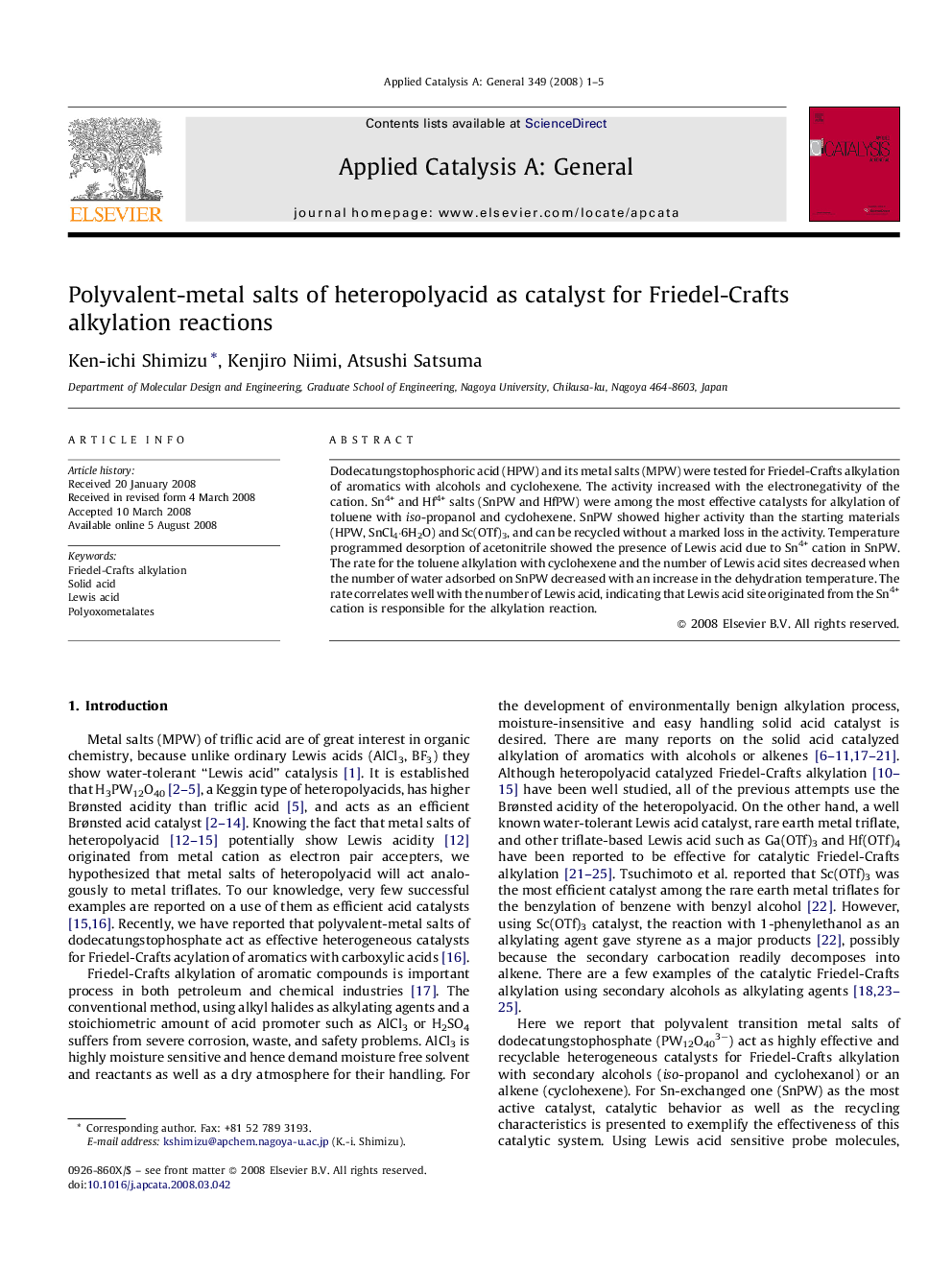| کد مقاله | کد نشریه | سال انتشار | مقاله انگلیسی | نسخه تمام متن |
|---|---|---|---|---|
| 42797 | 45942 | 2008 | 5 صفحه PDF | دانلود رایگان |

Dodecatungstophosphoric acid (HPW) and its metal salts (MPW) were tested for Friedel-Crafts alkylation of aromatics with alcohols and cyclohexene. The activity increased with the electronegativity of the cation. Sn4+ and Hf4+ salts (SnPW and HfPW) were among the most effective catalysts for alkylation of toluene with iso-propanol and cyclohexene. SnPW showed higher activity than the starting materials (HPW, SnCl4·6H2O) and Sc(OTf)3, and can be recycled without a marked loss in the activity. Temperature programmed desorption of acetonitrile showed the presence of Lewis acid due to Sn4+ cation in SnPW. The rate for the toluene alkylation with cyclohexene and the number of Lewis acid sites decreased when the number of water adsorbed on SnPW decreased with an increase in the dehydration temperature. The rate correlates well with the number of Lewis acid, indicating that Lewis acid site originated from the Sn4+ cation is responsible for the alkylation reaction.
Polyvalent transition metal salts of dodecatungstophosphate act as highly effective and recyclable heterogeneous catalysts for Friedel-Crafts alkylation with secondary alcohols and an alkene (cyclohexene). For Sn3/4PW12O40 as the most active catalyst, acetonitrile-temperature-programmed desorption (TPD) experiments show the relationship between the Lewis acidity and the catalytic activity.Figure optionsDownload as PowerPoint slide
Journal: Applied Catalysis A: General - Volume 349, Issues 1–2, 31 October 2008, Pages 1–5